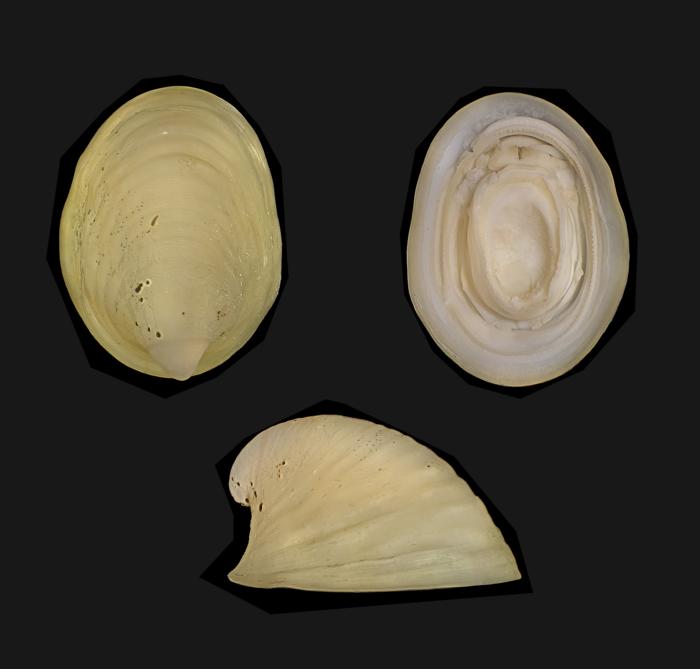Accelerating global change continues to threaten Earth’s vast biodiversity, including in the oceans, which remain largely unexplored. To date, only a small fraction of an estimated two million total living marine species have been named and described. A major challenge is the time it takes to scientifically describe and publish a new species, which is a crucial step in studying and protecting these species. The current scientific and publishing landscape often results in decade-long delays (20-40 years) from the discovery of a new species to its official description. As an alternative to this, the Ocean Species Discoveries initiative was launched, offering a new platform for rapid but thorough taxonomic description of marine invertebrate species.

Credit: Chong Chen, Hiromi Kayama Watanabe, and Miwako Tsuda
Accelerating global change continues to threaten Earth’s vast biodiversity, including in the oceans, which remain largely unexplored. To date, only a small fraction of an estimated two million total living marine species have been named and described. A major challenge is the time it takes to scientifically describe and publish a new species, which is a crucial step in studying and protecting these species. The current scientific and publishing landscape often results in decade-long delays (20-40 years) from the discovery of a new species to its official description. As an alternative to this, the Ocean Species Discoveries initiative was launched, offering a new platform for rapid but thorough taxonomic description of marine invertebrate species.
Ocean Species Discoveries is coordinated by the Senckenberg Ocean Species Alliance (SOSA), a project of the Senckenberg Research Institute and Natural History Museum Frankfurt. SOSA’s goal is to facilitate the discovery, protection, and awareness of marine invertebrate species before they become extinct.
The project coordinated 25 different researchers and produced data on thirteen marine invertebrate taxa, including one new genus, eleven new species, and one redescription and reinstatement. The species, which originate from all over the globe and at depths from 5.2 to 7081 meters, are brought together in an open-access publication in the Biodiversity Data Journal.
This is the first of a series of publications related to SOSA’s initiative, in collaboration with Biodiversity Data Journal, presenting a revolutionary approach in new species descriptions, thanks to which the publication of new species takes years, sometimes even decades, less. The ARPHA publishing platform, which powers the Biodiversity Data Journal, further expedites species descriptions and their use in studies and conservation programs by employing a streamlined data publishing workflow. ARPHA automatically exports all species data, complete with images and descriptions, to GBIF—the Global Biodiversity Information Facility and the Biodiversity Literature Repository at Zenodo, from where other researchers can easily find and use them.
One of the new species described in the Ocean Species Discoveries is Cunicolomaera grata, a curious amphipod whose burrows along the seafloor perplexed scientists. Another is a wrinkly-shelled limpet called Lepetodrilus marianae that lives on hydrothermal vents, underwater volcanoes in the deep-sea where temperatures can reach 400 degrees C. Normally, the descriptions for these two very different species wouldn’t be in the same publication, but this new publication format allows for species descriptions from different marine invertebrate taxa to be published together in one ‘mega-publication,’ offering a huge incentive for researchers to make their discoveries public.
“Currently, there’s a notable delay in naming and describing new animals, often because journals expect additional ecological or phylogenetic insights. This means many marine species go undescribed due to lack of data. OSD addresses this by offering concise, complete taxonomic descriptions without requiring a specific theme, refocusing attention on taxonomy’s importance,” says Dr. Torben Riehl, who is one of the researchers featured in Ocean Species Discoveries.
Reducing the time it takes to get from discovering a new animal to a public species description is crucial in our era of increasing biodiversity loss. The wrinkly-shelled limpet and two other species described in the Ocean Species Discoveries live in hydrothermal vent zones – an environment threatened by deep-sea mining. Another OSD species, Psychropotes buglossa, a purple sea cucumber (sometimes also called a gummy squirrel), lives in the North Atlantic, but similar species live in areas of high economic interest, where polymetallic-nodule extraction could soon endanger sea life. Threats like these risk driving species to extinction before we even get the chance to know and study them. Through efforts like SOSA’s Ocean Species Discoveries, we can get closer to understanding the biodiversity of our oceans and protecting it before it’s too late.
“Only by leveraging the collective strengths of global progress, expertise, and technological advancements, will we be able to describe the estimated 1.8 million unknown species living in our oceans. Every taxonomist specialized on some group of marine invertebrates is invited to contribute to the Ocean Species Discoveries,” says Prof. Dr. Julia Sigwart in conclusion.
Original source:
(SOSA) SOSA, Brandt A, Chen C, Engel L, Esquete P, Horton T, Jażdżewska AM, Johannsen N, Kaiser 5, Kihara TC, Knauber H, Kniesz K, LandschoffJ, Lörz A-N, Machado FM, Martínez-Muñoz CA, Riehl T, Serpell-Stevens A, Sigwart JD, Tandberg AHS, Tato R, Tsuda M, Vončina K, Watanabe HK, Went C, Williams JD (2024) Ocean Species Discoveries 1-12 — A primer for accelerating marine invertebrate taxonomy. Biodiversity Data Journal 12: e128431.
Journal
Biodiversity Data Journal
Article Title
Ocean Species Discoveries 1–12 — A primer for accelerating marine invertebrate taxonomy
Article Publication Date
6-Aug-2024



